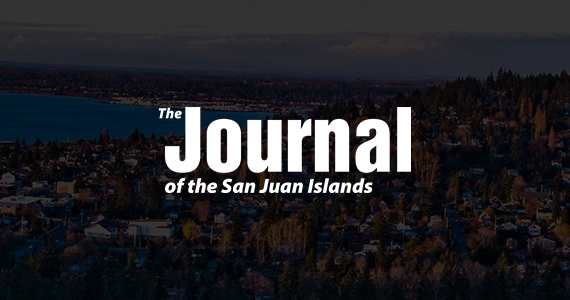Gordy Petersen and other committed critics of the County Council and administration have developed a technique of piling on so many partial facts and misleading conclusions that they collectively portray a county government run by reckless spenders and incompetents. I would like to respond to some of their deceptive arguments in the following paragraphs.
Even if county government is facing a real budget problem, there is something truly disheartening in the cynical way it is asking us taxpayers to raise our taxes. It is as if the County Council has become its own cadre of tea baggers and decided that if the fictional notion of “Death Panels” can undercut meaningful discussion about health-insurance reform, then perhaps “Death Panels” can scare county voters into increasing our property taxes.
The Journal has been covering the campaign issues since long before the campaigns began. We’ve watched the issues develop, we’ve covered the discussions in public forums, we’ve talked to the candidates as they emerged and became involved. We’ve questioned the candidates, investigated their claims, explored their pledges. The following candidates are the ones we feel have the best understanding of issues, the most solid plans for the future, the most ability to build consensus on difficult issues, and the best skills to get the job done. We recommend their election.
They want to make decisions on your behalf. They want to decide how your tax dollars are best spent. And in some cases, the privilege of representing you will come with compensation and full health benefits – better than many of their potential constituents receive. “They” are the candidates for office in the Nov. 3 general election. This election is significant in many ways: For the first time in 12 years, there are more than two candidates for mayor of Friday Harbor.
Recently, a guest column by Robert Low appeared in The Journal, as well as on SanJuanJournal.com regarding purchase of a specialty fire engine by the Town. On behalf of the Town, I am writing to clarify some points made by Mr. Low and correct some inaccuracies.
Now, the federal government wants to hear from you. On Monday, 7-9 p.m., in the Grange Hall in Friday Harbor, the National Oceanic and Atmospheric Administration, or NOAA, will host a meeting to hear public comment on its vessel distance and no-go zone proposal.
I’m optimistic that a strong stewardship ethic remains in this community, although currently quieted by the budgetary unrest and a debate characterized by a stark lack of civility that goes unquestioned. I’m also ready to step up with others in my community to do what I can locally to ensure that future generations experience restored salmon, rockfish, seabird and marine mammal populations in the waters of the San Juans.
Carrie Lacher and Robert Low, candidates for mayor of Friday Harbor, submitted these guest columns on two pressing issues of the day. You can read profiles of the candidates in the Aug. 26 and Sept. 16
editions of The Journal, as well as on SanJuanJournal.com.
We must not forget: We have a justice system. Each of us has a constitutionally protected right to a fair trial. Each of us, when accused of a crime, is presumed to be innocent until proven guilty. Facts will be presented, testimony will be given, and all evidence will be weighed at a public trial.
Proposed changes to the county’s Critical Areas Ordinance would have significant impact on how we build, and where we build, in the San Juans. In these guest columns, Gordon White of the Department of Ecology and attorney Dennis Reynolds argue the science behind the proposed changes.
Local and federal government agencies will make decisions soon that could have far-reaching effects on how we build our homes, how we can use our fairgrounds, how our urban growth areas accommodate growth, and how we develop the waste transfer station on San Juan Island. Several public meeting are scheduled to take public comment on these issues. Go. Listen. And share your view. This is your opportunity to influence decisions that could affect you.
The resident orcas are here mostly from May to September, hunting once-abundant salmon runs. Today, that prey is depleted. A major humpy run is passing through the San Juans right now, but if you’re an orca you have to catch more humpies than you do a massive chinook. And you have to do it in waters that are polluted. Those problems extend beyond a half-mile boundary, and they extend beyond May to September. Those problems are regional and they are year-round. We need to enforce the laws we have now. We need to promote alternative ways to watch the whales and other wildlife. We need to keep improving salmon habitat. We need to keep cleaning up the sea.
Change will not happen without ongoing community input. As such, I encourage you to contact the Town Council to make appropriate modifications in the current roads and for future construction before somebody is hurt.



